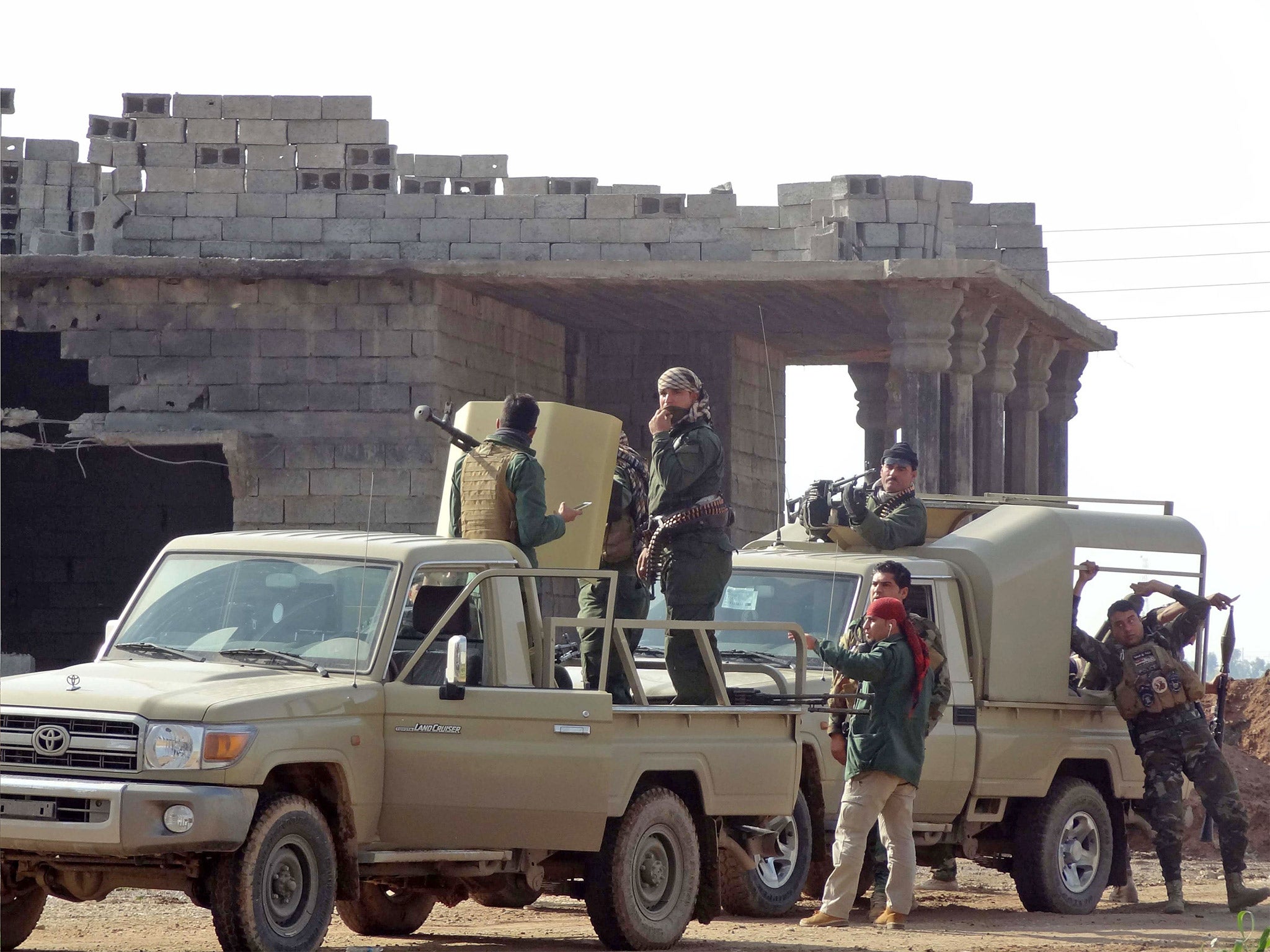War with Isis: Iraq's religious minorities are living in terror as they prepare for an attack by the militants
Villagers around Kirkuk fear the worst as memories of the massacre of the Yazidis looms large

Among a muddle of adobe houses south of the city of Kirkuk, in northern Iraq, a band of poorly armed Kurdish fighters patrol the streets of the village that has been renamed “Kobane” because of its proximity to the Isis front line.
The fighters are Kakai Kurds, members of a secretive minority religion whose villages near Kirkuk are now caught between the jihadists and the Kurdish forces. Living in terror, Kakais fear their sect could suffer the same fate as the Yazidi minority who were slaughtered and captured by Isis as they tore through northern Iraq last summer, so have formed a new fighting force under Iraqi Kurdistan’s Ministry of Peshmerga.
“How do you think anyone can feel safe living near Isis?” asks Rajab Assy gesturing towards the front line 500m away. He works as a local official and is a member of the Kakai faith, whose male members sport large bushy moustaches and can be found across northern Iraq and western Iran where they have suffered persecution.
Isis has targeted minority groups in Iraq, many of whom live across the religiously diverse Ninawa plain. As well as destroying Yazidi towns and massacring hundreds, the militants released an ultimatum to Christians in Mosul last summer to convert, pay a tax or die by the sword.
Power struggle: Isis areas gained and lost
Show all 1Major Farhad Nazar is the unofficial leader of the unit of 1,600 Kakai fighters which was established in the wake of the Isis assault on Iraq. He says that first his men took up arms voluntarily, before 600 of them were taken into the ranks of the peshmerga. “When the Yazidis were being killed by Isis we felt fear. We are Kurds but we have a different faith, we thought that maybe when Isis come they will kill us too,” he said.
The unit finished training with the peshmerga at the end of January, but are yet to receive weapons from the peshmerga ministry, who say the order to arm them has been issued but a commander still needs to be found. The Kakai fighters, who wield worn-out Kalashnikovs, form part of a new group of minority forces now under the umbrella of the Kurdistan Regional Government, being trained to protect their own towns and villages.
“There are multiple Kakai villages which are under constant threat from Isis,” said Jabar Yawar, secretary general of the Ministry of Peshmerga, referring to the area around Daquq, 20 miles south of Kirkuk where the black Isis flag can be seen from the road. “Isis is very close to the positions of the peshmerga forces in the area. They are only about 1km way from the Baghdad highway. The villagers have been forced to arm themselves.”
On 30 January Isis attacked fronts around Kirkuk and managed to storm an abandoned hotel in the centre of the Kurdish-controlled city, demonstrating their continued threat.
As Isis assaulted the Yazidi stronghold of Sinjar in northern Iraq last August, peshmerga forces withdrew, leaving the population in the hands of the jihadis. Hundreds were killed and thousands more fled to Mount Sinjar.
In the wake of the slaughter, two active Yazidi units were established, as well as units for Christian, Shabak and ethnic Turkoman fighters who Mr Yawar says are still receiving military training.
Sherzad Nezar, the brother of Major Farhad, says there are between 50,000 and 60,000 Kakais in Iraq, who believe in reincarnation and are vulnerable because they live on the borderlands between Kurdish and Arab Iraq. He cites bomb attacks and threats from terrorist groups targeting Kakai communities in the years since the 2003 overthrow of Saddam Hussein, and the destruction of three Kakai shrines by Isis in Mosul last summer. “We are a closed religion, we can’t invite others to join us,” he says. “If Isis want to find a reason to kill us there are two reasons: we are Kurds and we are Kakais.”
In the village of “Kobane”, behind the front line stands a Kakai shrine replete with green painted domes and flags fluttering in the cool air. Pictures of Imam Ali hang on the wall inside and bright coloured cloth is strung up in one corner of the temple. Down the dirt track the front line is quiet, despite weekly mortar fire coming into the nearby Kakai town of Zankar, Mr Assy says. But how long “Kobane” will remain calm is the concern of the men.
Subscribe to Independent Premium to bookmark this article
Want to bookmark your favourite articles and stories to read or reference later? Start your Independent Premium subscription today.

Join our commenting forum
Join thought-provoking conversations, follow other Independent readers and see their replies